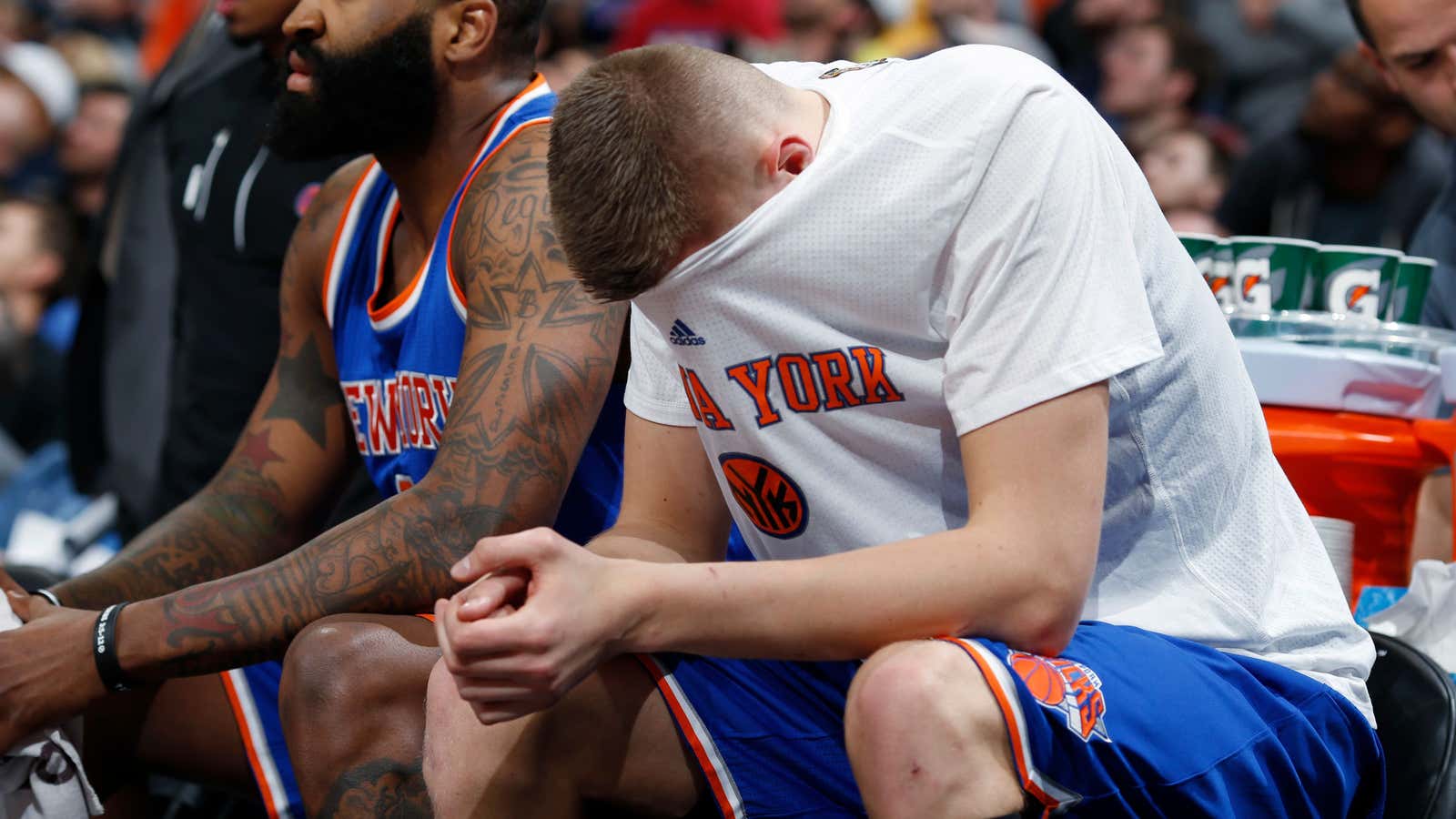The New York Knicks are the worst, most mismanaged team in the National Basketball Association. Its parent company, however, is doing just fine.
A day after the Knicks traded away its best player and the future of the franchise, the Madison Square Garden Company—the sports and entertainment business that owns the Knicks—reported its 2019 fiscal second quarter earnings. (MSG’s fiscal year begins in July.) The results pleased investors much more than the trade pleased fans of the perennially losing team.
Overall revenue was $632 million, up 18% from the same period last year. Revenue for the company’s sports arm, which controls the NHL’s New York Rangers in addition to the Knicks and the renowned Manhattan arena that they both play in, was up 19% to $315 million. MSG’s share price has stayed level around $278 during Feb. 1 trading.
Meanwhile, Knicks fans have voiced their exasperation with MSG CEO and Knicks chairman James Dolan on social media after the team traded the 23-year-old Latvian player Kristaps Porzingis to the Dallas Mavericks yesterday in exchange for a package of lesser players and two future first-round draft picks.
Still, on its earnings call today, the company attributed its solid growth to an increase in both tickets sold and the price of tickets, for the lucrative concerts it hosts at Madison Square Garden, including the always popular “Christmas Spectacular” featuring the Rockettes. Investors are also optimistic about the futuristic, bubble-like “Sphere” venues the company is building in Las Vegas and London.
Knicks fans don’t care about any of that, though. They care that their team is literally the worst in the NBA, and that it just sent its most promising player packing.
MSG Company president Andrew Lustgarten (who has an amazing last name for one of the executives responsible for The Garden) made an exception to his rule of no trade talk on earnings calls to explain the team’s thinking behind trading away Porzingis.
“We generally don’t talk about player movement on these calls. We don’t think it’s appropriate,” he said. “That said, this is a pretty big one. We believe we’re staying exactly on where we are going on our path. We’re trying to build championship caliber franchises.” Lustgarten added that the maneuver gives the team “tremendous financial flexibility” in its quest to land superstar free agents over the summer. (My colleague Oliver Staley explained why he thinks that strategy is unlikely to pay off.)
Viewing the ongoing Knicks disaster (the team has a league-worst 10-40 record and will miss the playoffs for the sixth consecutive season this year) in light of its parent company’s thriving business underscores a weird reality in American sports: The success of a team on the playing field or court often does not correlate with the success of the team as a financial pursuit.
According to Forbes, the Knicks are the most valuable team in the NBA despite its mismanagement. The situation is similar in the National Football League: The Cleveland Browns, long the laughingstock of the league (though they turned it around this year), is actually a pretty strong business.
Such facts are not going to comfort Knicks fans hoping the team miraculously digs itself out of its decades-long rut. As long as Madison Square Garden Company is succeeding, Dolan has little need to overhaul the way he has been running the Knicks for the better part of the last two decades.
MSG and the Knicks prove it’s possible to drive up a company’s value while simultaneously running a sports franchise into the ground. If fans of the team want something to change, they should hope for new management. (MSG is planning to spin off the Knicks and Rangers into a separate company, but the Dolan family will maintain control.)
Or they could just root for the Nets.
